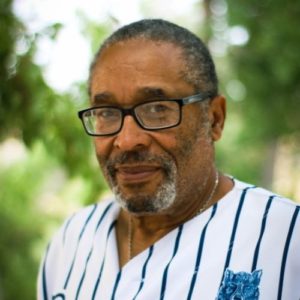
What does black history month mean to me? It is a combination of recognizing the history of the African Diaspora and recognizing my ancestors which are the shoulders I stand on today. I was brought up to know my history from my parents and become a strong black man in my community. Up until I was well into my adulthood did I realize that the accomplishments of my black African American brothers and sisters were not taught to me while in school. It was slightly revealed to me that I was different while growing up in the Denver metropolitan area experiencing prejudice and biased interactions. It was more prevalent when I had joined the United States Army in basic training, whereas meeting other people from other cultures with all of us working to get along for a common goal.
Serving in the military. I was often picked as the token black man to speak for the other black people and represent them as an equal opportunity NCO “noncommissioned officer.” This went on in several different units that I was assigned to throughout my career in the Army. After getting out of the service, I eventually worked at Metropolitan State College of Denver – (now Metropolitan State University of Denver) as the African American Association president and the advisor for the black student alliance during my tenure. Throughout that time, I served on many committees, including the Dr. Martin Luther King Peace Breakfast, and became an honoree of that award.
I have also served as a committee member with the Dr. Martin Luther King Jr. Colorado Holiday Commission since 1991, serving as a Youth Coordinator, Marade Marshall Coordinator, Planning Committee member, and participant in the Marade. Also, at Metro State. I was involved with bringing together multicultural inclusion on the campus and pushed for a multi-cultural department for Metro. I have worked in the community with the James P Beckwourth Mountain club, and the outdoor education center where I took young people from the inner-city (i.e., gangs, broken homes, and from Boys and Girls Club) to experience the outdoors that they normally would not experience. Serving on committees the board and other activities in the club. We established a black history of Colorado pioneers and entrepreneurs. I personally represent a black outdoorsman i.e. mountain man and an entrepreneur name Lewis Price.
While at Stout Street Foundation. I have been provided the opportunity to have residents participate in the Dr. Martin Luther King Marade ceremonies and celebrations throughout the last four years. I also have taught a class on cultural diversity in the addictive community. Bringing to the client’s realization of the cultural differences in the addiction world.
What is black history month and where did it come from?
Origins of Black History Month
The story of Black History Month begins in 1915, half a century after the Thirteenth Amendment abolished slavery in the United States. That September, the Harvard-trained historian Carter G. Woodson and the prominent minister Jesse E. Moorland founded the Association for the Study of Negro Life and History (ASNLH), an organization dedicated to researching and promoting achievements by Black Americans and other peoples of African descent.
Known today as the Association for the Study of African American Life and History (ASALH), the group sponsored a national Negro History week in 1926, choosing the second week of February to coincide with the birthdays of Abraham Lincoln and Frederick Douglass. The event inspired schools and communities nationwide to organize local celebrations, establish history clubs, and host performances and lectures.
Did you know? The NAACP was founded on February 12, 1909, the centennial anniversary of the birth of Abraham Lincoln.
In the decades that followed, mayors of cities across the country began issuing yearly proclamations recognizing “Negro History Week.” By the late 1960s, thanks in part to the civil rights movement and a growing awareness of Black identity, “Negro History Week” had evolved into Black History Month on many college campuses.
President Gerald Ford officially recognized Black History Month in 1976, calling upon the public to “seize the opportunity to honor the too-often neglected accomplishments of Black Americans in every area of endeavor throughout our history.” Today, Black History Month is a time to honor the contributions and legacy of African Americans across U.S. history and society—from activists and civil rights pioneers such as Harriet Tubman, Sojourner Truth, Marcus Garvey, Martin Luther King Jr., Malcolm X, and Rosa Parks to leaders in industry, politics, science, culture and more.
Black History Month 2022 Theme
Since 1976, every American president has designated February as Black History Month and endorsed a specific theme.
The Black History Month 2022 theme, “Black Health and Wellness,” explores “the legacy of not only Black scholars and medical practitioners in Western medicine, but also other ways of knowing (e.g., birthworkers, doulas, midwives, naturopaths, herbalists, etc.) throughout the African Diaspora. The 2022 theme considers activities, rituals, and initiatives that Black communities have done to be well.”
Alton Clark is a veteran of the US Army, having served from 1975 to 1991. He has been with Stout Street Foundation since 2019 as a Certified Addiction Specialist. Alton is an advocate for civil rights by treating people the way you would want to be treated.
